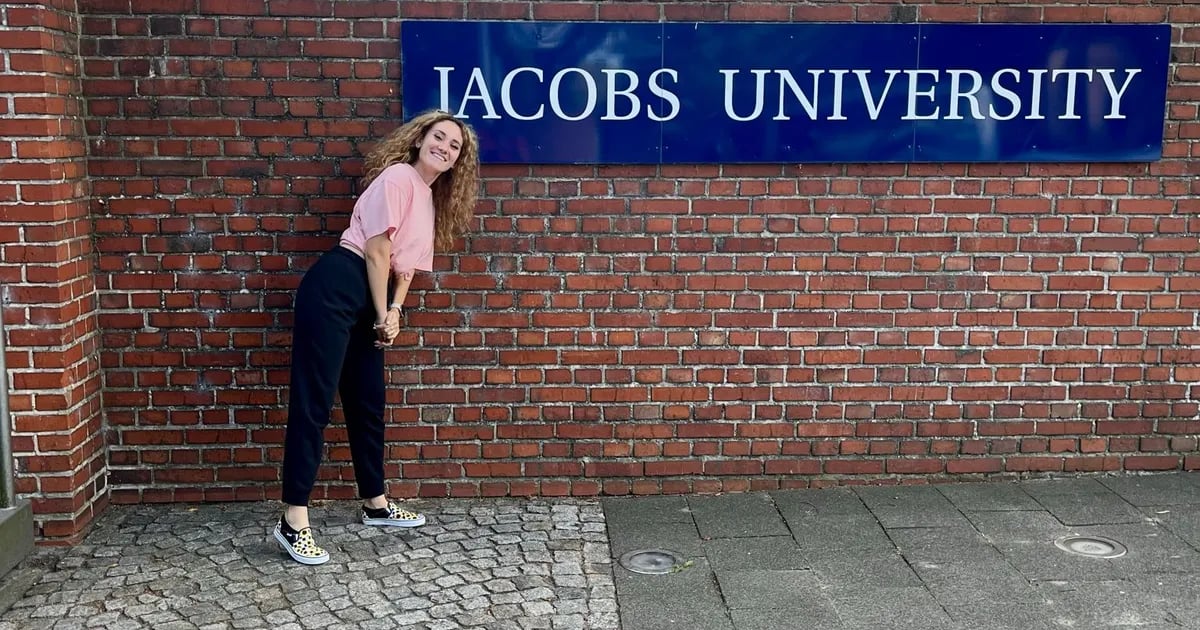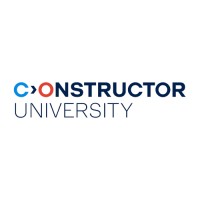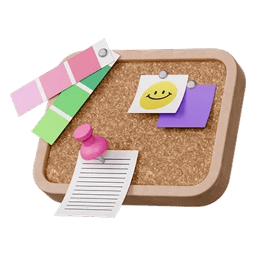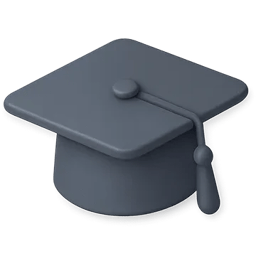Let’s meet Ana!
Hello, my name is Ana and I am from Romania, Galati. I am in the final year of studying Earth and Environmental Sciences in Germany, Bremen, at Constructor University (previously Jacobs University).

Extracurriculars
When I was in the 9th grade, I saw a girl on Instagram studying Marine Biology. I became very curious about this field, and I began looking for information about it. I decided then and there—that was what I wanted to do in life, and I haven’t changed my opinion ever since.
However, since I didn’t live near the ocean due to my country’s geographical position, I couldn’t find activities perfectly fitting this topic, so I had to discover these opportunities by myself:
I completed three online courses on Coursera and edX;
I found a UK-based association called The Marine Biological Association, and became a member. I had access to a lot of research articles and magazines; I’d have group meetings with people who worked there, and it was really interesting.
They had a contest for students who were between 15 and 18 years old, and I had to write an essay in which I would describe what the ocean meant to me, and the person who won that contest would get their essay published in The Guardian. I thought I had nothing to lose and wrote that essay, and actually won! I was talking about how relatives and friends never approved of this dream, telling me to find a real job, while I also emphasized my love for the ocean and raised awareness about pollution.
In 11th grade, my counselor told me: "You should have a passion project because that’s the most important thing when you apply in the U.S." I started a passion project called Ocean in Motion, alongside three friends. We made a website and an Instagram page where we were trying to inform people about the Danube and about the climate change in Romania. Everything was in Romanian, and this extracurricular was the closest thing I had to climate activism.

Why Germany?
Initially, I wanted to apply to the U.S., and I got accepted, but due to the lack of funds, I couldn’t afford to study there. My counselor was studying in Germany and advised me to apply here because they have a great laboratory called The Ocean Lab, and there is a lot of research done related to Marine Sciences. I got accepted with a scholarship.
Another strong reason for my application here is that it’s an American-based university, and I strongly wanted to go to the U.S. Constructor is a private university, so all the majors are in English.
Also, in order to do Marine Biology, you usually have to be somewhere near the sea, and Bremen is in the proximity of the North Sea.
I wanted to work part-time, so I discovered that there are a lot of organizations and institutions focusing on Marine Biology because we have the North Sea here, which is amazing. I feel like the universe just brought me here, putting me on the right place on the map.

Studying in Germany
Major and Minor
I originally wanted to major in Marine Biology, but since that wasn't offered, I chose Environmental Science, Biochemistry, and Cell Biology. I thought Environmental Science would cover everything related to the environment, offering me the flexibility I desired for my Master’s Degree. However, I wasn't careful enough when choosing this Major, and I ended up in a program focused heavily on geosciences, with courses in sedimentology, structural geology, volcanism, seismic, and geophysics. I found that very frustrating.
In my first year, I was offered the option to choose a Minor, so I selected Biochemistry and Cell Biology, hoping they would better align with my interests. Despite my dissatisfaction with the first-year courses, I stayed in the program and passed all my exams. By my second year, I started studying geochemistry, which I found more enjoyable, along with oceanography. While it wasn’t Marine Biology, the combination of courses was more aligned with my passion, and I gained valuable research experience.
Educational System
I believe the relationship between the students and professors is what surprised me the most here.
In my case, I only have four professors, and we have these meetings every month, called coffee corners. We meet with them, drink coffee, eat lunch, and talk about problems we have with professors, classes, labs, internships etc.
You can ask any questions, without being judged at all. They explain things many times and you can also go to their office if you have questions. They even respond to emails or messages! I believe this deepens the understanding and interest you show toward any topic, so it definitely boosts your grades and overall passion.
I’d say the teaching here is based both on memory and application. For example, in Environmental Microbiology, we studied wastewater treatment plants. We had to learn some chemical reactions by heart, but in the exam, the professor gave us a scenario and asked, "If you were a researcher designing an environment with different microbes for a wastewater treatment plant, how would you proceed?" They test your understanding, not just your memory.

Admission Process
It was the same application process as for universities in the U.S., so I used Common App—that’s the portal for the U.S. When I applied, they were asking for the SAT, and the score they wanted had to be more than 1,200.
Also, they were asking for an English exam. In the U.S., they don’t accept Cambridge, but here they accepted it.
Then, they asked for a CV, recommendation letters from professors, and a motivation letter. I also had to answer specific questions like: "Why did you choose to apply here?".
I like to say that my soul always belonged to writing. In another life, I would be an editor because I love writing essays, so I made all of my essays metaphorical. I began the essay writing about the ocean and how I see it; what it truly means to me despite others’ opinions.
Scholarship
The tuition here is 20,000€/year, only for classes. Besides that, you also have to pay 8,000€ if you want to stay on campus for the room and food, which is mandatory during the first year.
The scholarships they offer start at 4,000€, so if you get accepted, you automatically get 4,000€ if you are an EU citizen. Based on your results, extracurriculars, and grades, you can get up to 8,000€, which is the biggest scholarship they offer.
I got 8,000€, so I still had to pay 12,000€ for classes, plus the money for accommodation and food. They also offered a loan, which covered the rest of the cost after the scholarship. I took the loan, so I only had to pay 8,000€ for food and the room on campus. They did not offer any loans for the accommodation.
I wouldn’t say the education is better compared to other universities in Germany.
For me, though, I think it’s worth the money because I wouldn’t have had all these opportunities if I had gone somewhere else in Germany. I’ve done a lot of cool things, so I’m really happy I chose to come here.
Life as an International Student
First Month
The adaptation process was easy because I really wanted to leave home. When my parents left me on campus, they were crying in the car, waving at me, and I was like: “Finally!". My counselor was still there and I also came with a friend, so the transition wasn’t difficult at all.
I made many friends that first month, especially during the orientation week. However, I didn’t experience any cultural shocks; it felt like home because I spoke Romanian every day.
Budget
However, I moved off-campus after the first year and started paying rent. I began working in my second year—on campus at first—and now I work off campus. If the money from my parents isn’t enough, I use my salary.
My rent, compared to the Netherlands, it’s cheap, but in Germany, it’s expensive because I live alone. My rent is 700€/month, including utilities like electricity (with a roommate, it would be 400-500€).
For food and other expenses, I use around 200€/week, which sounds like a lot, but the food here is very expensive. So, to live comfortably on your own here, you need at least 1,500€/month.
If you work in Germany, you must have German health insurance, which costs 140€/month for students.
I had a lot of teaching assistant jobs. Last year, I was a student assistant in the geochemistry laboratory, helping PhD students with their experiments, which was very fun.
We have this society in Germany called Max Planck. They do research on everything from cell biology to astrophysics. I had a class with a professor from that institute, and he actually found me a job there! He said: "This would be better for your Master’s application."
Now I work there, helping a PhD student with his work. It’s similar to being a student assistant, but more in-depth than what I was doing on campus. We do a lot of experiments. I like it a lot!

Community
People come here from over 100 countries, and I’ve met people from places I didn’t even know existed; therefore, I have many international friends. Everyone is welcoming and wants to make friends, which is great because we also have festivals, like Oktoberfest; also the Christmas markets in December, which are the best thing ever. The one in Hamburg is amazing.
On campus, people only speak English, so you don’t have to worry about German. But when you go to the supermarket or a coffee shop, you have to speak German, which was most of the time a problem for me.
Advice from Ana!
For the 9th grader
Never give up on your dream. If you know you really want to do something, don’t take into consideration what anyone says. Follow your dream, even if you don’t know exactly where it leads or why you want it. If you feel it’s what you should do, follow your heart.
For the 1st year student
Don’t trust people too easily. When you start university, you’ll make a lot of friends, and everyone seems nice, but after a few months, you’ll see that not everyone is genuine. Be open, but not too open, and take care of yourself.

Passion for Marine Biology
It has grown a lot. When I was home, I knew I wanted to do Marine Biology, but I didn’t know exactly which part of it interested me the most since I had basically 0 experience with it. Marine Biology is a very broad topic, and you can focus on a diversity of aspects within it. I only realized that when I came here, and the people I work with and the professors are so inspiring! They’ve done so many amazing things in their careers. They also offer you so many opportunities to work with them or assist them in projects. Seeing them inspires me and makes me excited about my field!
Universities have a lot of funding for research, which is great for science-related studies. However, if you’re studying something like music or arts, it might be a disadvantage coming here because there isn’t much funding in those areas.
Dream Job
Most people whom I know who study Environmental Science or Marine Biology do their Master’s and then a PhD, which is considered a job—you actually get a salary while you’re doing it.
Eventually, you have to choose between academia and industry. In academia, you can become a professor or stay in research (or both), working in a lab and hoping for funding for your experiments. In industry, you can work for companies producing antibiotics, drugs, or other products.
For me, I don’t want to leave academia. I want to stay in research and work in a lab forever. If I could, I’d go to the lab every day. I love working in the lab!
Microbiology is fascinating because it’s the biology of small organisms, and many people don’t really believe in it until they see it. I love working in the lab, especially with microscopes. When you look through a microscope, you can see exactly what you’re working with—it’s tangible. It’s not just theoretical talk; you can actually see the organisms.

Chile Internship
How did you find it?
At my university, second-year students are required to do an internship during the summer between their second and third years. It’s mandatory to get the credits to graduate, and therefore, everyone started looking for internships.
Initially, I got an internship at the Max Planck Institute, where I'm working now. I found out about a program called DAAD RISE Worldwide, which offers science internships all over the world. They give scholarships based on the distance you travel, so I applied for internships in Chile, the U.S., and Ecuador, and I got accepted to Chile.
Experience
I stayed there for two months, with a scholarship, working at one of the best universities for Marine Science. We worked on a project studying a specific type of seagrass that grows only in Chile and Australia, but doesn’t flower in Chile because the water is extremely cold; we did experiments to confirm this hypothesis.
We set up tanks with different water temperatures: one with the temperature in Chile, one with the temperature in Australia, and one in between. We built everything from scratch—cutting and gluing the pipes for the tanks.
Then we went out to the open ocean to collect samples. We dived to collect seagrass and sediments from the ocean floor. Back in the lab, we placed the samples in the tanks and started monitoring them. Every day, we measured UV light, water temperature, and other parameters, while also marking specific pieces of seagrass with various colors strings and measuring their growth daily with a ruler.
However, I found that part frustrating because I expected more complex work—anyone can measure leaves!


PADI
Besides my actual internship, I got my diving certificate through PADI, the Professional Association of Diving Instructors. It’s one of the most recognized organizations for diving certifications.
I did an online course, studied, and passed a theoretical exam. Then I had three practice sessions in a pool and three in the ocean. The first ocean session was in shallow water, about three meters deep, right on campus. The second was at a depth of seven meters, and the last session was in a city 40 kilometers away. We took a boat into the middle of the ocean and dived down to 18 meters.
The water was 12 degrees Celsius, so it was freezing. My instructor, Camila, said that people who get their certification in Chile are considered very resilient because of how cold the water is. During the last dive, I almost gave up. It was raining, the waves and currents were strong, and the water was so deep that I couldn’t see anything. But I reminded myself, "You didn’t come this far to give up now." I pushed through and completed the dive. It was amazing. I saw a huge jellyfish, sea stars, snails, and even anemones. I’m so proud of that moment!

I discovered in what type of environment and with what type of people I don’t want to work with. The experience taught me a lot about what I value in a workplace.







